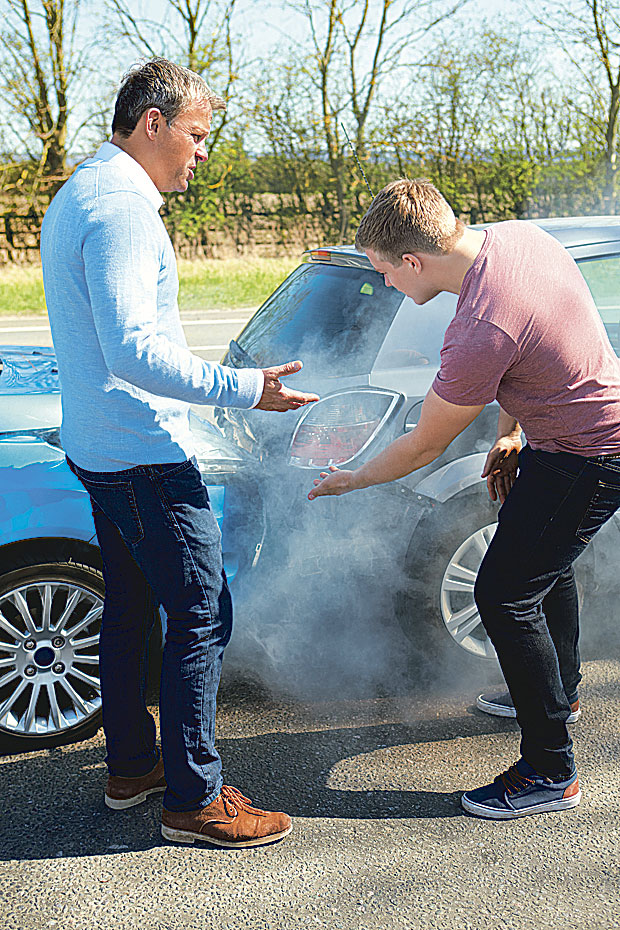Except for the those who came up with them, no one agrees with the latest legislative proposals in the insurance market. A bill pending in the Senate (already approved by the Economic Commission) is called into question by the companies and by the state authority alike. The professional associations of insurance companies and brokers, UNSAR and UNSICAR, went as far as reporting the project at the European Commission for allegedly discriminating the Romanians against the other citizens of the European Union, for thickening the claim settlement procedure and leading to raising insurance rates.
According to this project, all technical assessments for damaged cars must be performed by professionals licensed by the Body of Evaluators and Technical Experts (CEETAR). The proposal is rejected not only by insurance companies and brokers, but also by the Financial Supervisory Authority (FSA), whose CEO, Misu Negritoiu, said recently that for the assessment of car damages there is no need for a new public institution, but for a private market watch: “the last thing we want right now is distort the market through an administrative intervention”.
FSA blames the commissions
On the other hand, according to Negritoiu, nor the inflated commissions imposed by brokers on car insurances, neither the damages can be covered because of the high ratio between costs (mainly distribution costs) and the gross premiums charged by the insurance companies. Hence, FSA advanced a legislative proposal forcing insurance companies to mention all brokering commissions on the mandatory car insurance policies and to cap this commission at 10%.
According to the brokers’ association, UNSICAR, the European average is 3%-5%, while the Romanian one reaches 20%. The brokers rebuke FSA’s proposal on account that its coming into force would leave some 25,000 employees jobless. During a news conference, Misu Negritoiu replied by asking “how are these workplaces subsidized if not through price distorsion?”
When garages walked hand in hand with the insurance companies
If there was ever a moment when garages and insurance companies agreed on one thing, that moment is now – all because of the FSA proposal, disputed by both sides. The garages’ association, ASSAI, notices that, since summer is the holiday season, “we need more time to advance some robust proposals”, emphasizing that, in its current form, the project doesn’t include any major amendments that would make life easier for the RCA beneficiaries. ASSAI suggests insurance companies should be subject to some significant penalties, carrying a 70,000 euros fine or licence revocation for up to 30 days for those firms that fail to comply with the rules. FSA paid little attention to this proposal, with Misu Negritoiu announcing the consulting period was done and even professing that “as long as we don’t dare to teach the garages how to do their business, we ask them to stay away from financial markets regulation”.
A polarized market
The RCA market is marked by huge price differences. Some of the companies – such as Astra, Euroins or Carpatica – set prices as low as half the market average and were often accused of dumping practices that would prevent them to reimburse for their clients’ potential damages. Of course the drivers tend to opt for the cheapest offers, since this sort of insurance policy compensates for the third party’s losses, so it’s in the client’s best interest to pay as little money as possible, as long he’s keeping the law. In turn, insurance companies complain about the prices set by garages, which charge them much more than individual clients. “We don’t want to infer that everybody does it, but most of the times the hourly labour costs displayed in the automotive shops are five times higher when the compensation is paid by an insurance companies”, explains for Capital Sorin Greceanu, managing director, National Romanian Fund for Road Victims.
The auto dominance
Car policies make up a big part of an insurance market on which there are only two mandatory policies, RCA and home insurance, the latter with a poor coverage (of 15% of all homeowners).
On the general insurance segment, most gross written premiums were recorded in motor vehicle liability class (37.18% of total) and no-fault insurance policies (CASCO).







